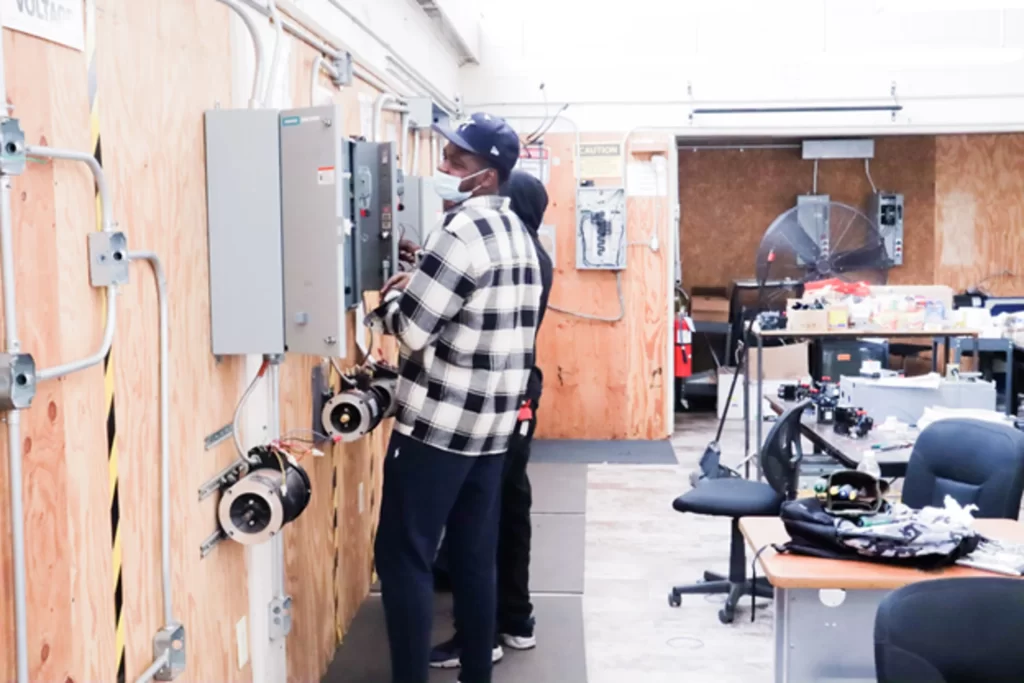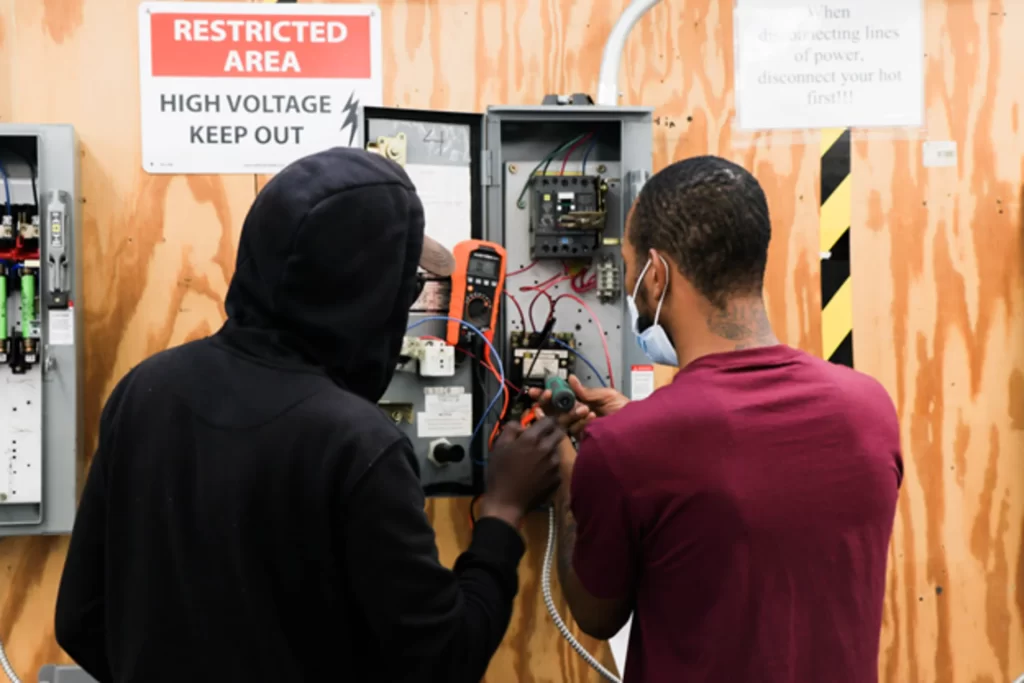Electricians are an important part of modern society. They work in various settings, from homes and small businesses to extensive industrial facilities. In an electrician career, they install, maintain, and repair electrical systems and equipment, ranging from simple light switches to complex electrical control systems. Let’s take a look at what a day looks like in an electrician career.
An electrician’s job duties vary depending on their specialization and the setting in which they work. However, some familiar electrician job duties include the following:
Electricians often start their day by reviewing project plans and specifications. This helps them understand the scope of work and the materials needed for the project.
Electricians may need to communicate with clients and contractors to discuss project details and timelines and address any questions or concerns that arise in electrical work.
Electricians spend a significant portion of their day installing and repairing electrical systems. This skilled trade work includes everything from wiring new homes or commercial buildings to installing new lighting fixtures or replacing old electrical panels.
Electricians must also test and troubleshoot electrical systems to ensure they function correctly in the electrical industry. This may involve using diagnostic tools to locate and fix electrical problems.
Safety should be of utmost importance for electricians. They should stick to the regulations and guidelines while working on electrical systems. This includes wearing appropriate safety gear and ensuring all electrical systems are properly grounded and installed to prevent electrical hazards.
Electricians must keep detailed records of their work in the electrician program, including project specifications, installation and repair records, and safety documentation.
Electricians must know evolving technologies and safety standards of the electrical industry. Therefore, they may attend regular training sessions or complete continuing education courses to stay current with new developments.

Electricians work in various settings, from residential homes to commercial buildings to industrial facilities. They may work indoors or outdoors, depending on the nature of the job. Some everyday work environments include:
Electricians may work in individual homes, installing new electrical systems or upgrading existing ones. They may also be called upon to repair electrical problems or perform routine maintenance.
Electricians may work in commercial buildings such as offices, stores, and restaurants. They may be responsible for installing electrical systems, maintaining existing ones, and troubleshooting problems.
An electrician career involves working in factories, power plants, and other industrial settings. In addition, they may be responsible for maintaining and repairing large electrical systems and equipment.

Electricians may work on construction sites, installing new electrical systems in buildings under construction.
Electricians will always be in demand around the world. According to the BLS, electrician jobs are projected to grow 8% from 2020 to 2030, which is faster than the average for all careers. The demand for electricians is expected to come from construction and the need to upgrade existing electrical systems in homes, businesses, and factories.
To become an electrician, you must complete a training program for electrical workers. Apprenticeships typically last four to five years and are administered by local trade organizations or contractors. After completing an apprenticeship to work as an electrician, a license is necessary.
Electricians are crucial to operating our homes, companies, and communities. They are experienced craftspeople who build, maintain, and repair electrical systems and equipment. The demand for electricians’ services is anticipated to increase. Consider finishing electrical/mechanical programs and earning licenses or certifications to operate in your region.
Read More